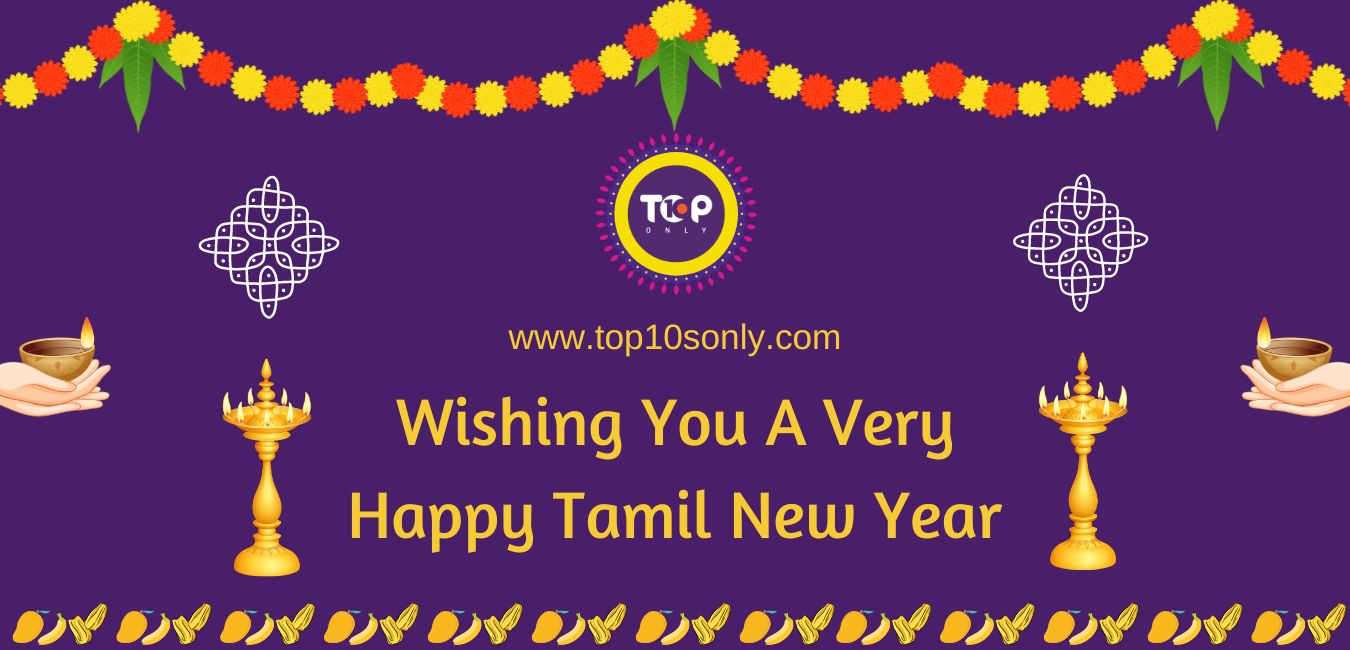
Puthandu is one of the most significant festivals celebrated in the southern Indian state of Tamil Nadu. This auspicious occasion marks the beginning of a new year and is celebrated with great joy and fervour by Tamil communities across the globe. As part of our Top 10 Inspirations, you can find below the reason for the name Puthandu and also the significance.
Why is the Tamil New Year called Puthandu?
The Tamil New Year’s Day is called Puthandu. Here, “Puthu” means new, and “Andu” means year. It is also called Varusha Pirappu and Puthuvasrusham, which all mean the birth of the new year. This festival is celebrated on the first day of the Chithirai month of the Tamil solar calendar. The region of Tamil Nadu follows the Sauramana or solar calendar. The calendar is calculated using the sun’s movement as the base for calculating the time of the year. Our ancestors chose the exact day the sun is over the equator to find the start of the year.
Why is Puthandu celebrated on a different day from Ugadi, Gudi Padwa, etc.?
The diversity and richness of India’s culture shine bright on the numerous New Year’s Day celebrations that take place throughout the year. The emotions run high as people across different regions joyfully welcome the arrival of a new year, marking it on different dates based on the lunar or solar calendar. The solar calendar followers revel in the celebrations during the Vaishakha month, marking the new year with fervour and gaiety through various festivals like Baisakhi, Rongali Bihu, Puthandu, Vishu, Pana Sankranti, and Poila Boishakh. The festive vibe hits its peak as these celebrations culminate on the 14th or 15th of April.
At the same time, those who adhere to the lunar calendar enthusiastically celebrate the new year on the first day of the Chaitra month, marking it with cultural significance and traditional rituals. Ugadi in Andhra Pradesh, Telangana, Karnataka, and Gudi Padwa in Maharashtra are the perfect examples of this emotional celebration. The sheer excitement and passion are palpable as people welcome the new beginnings with hope and optimism. India’s vibrant and diverse culture is truly a sight to behold, and the new year celebrations showcase its beauty and magnificence like nothing else.
Significance Of Puthandu
Like all the many other festivals in India, Puthandu too has great significance and needs to be understood to fully enjoy the rituals that are performed. It is celebrated by the Tamil community as the day Brahmadeva created the universe. Another mythological story behind the celebration of this day is that Indra, who is said to be the ‘Prince of Harmony’ visited Earth to create peace and contentment. So this day is considered the most important day of the year. People observe this day with great joy and hope to start the year with prosperity and good fortune. Many believe that it is an auspicious day to start new businesses or endeavours.
Another significance of this day is that since the sun is exactly midway between the northern and southern hemispheres, it symbolises the balance between nature and people. Apart from the rituals of cleansing and decorating the home and performing pooja, food plays an important role. Many dishes are made and served to the family. The Mango Pachadi is one such special dish that has a special significance. It is jaggery, which signifies sweetness, tamarind, which represents expectations, and the neem flower, which signifies sorrow. So the entire dish is a reflection of the flavours of life that one hopes for the year. Also, don’t forget to prepare the special Mango Pachadi for your family! Truly, this is the day for holding one’s families close and creating new memories!
Happy Puthandu to everyone!

